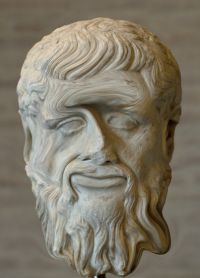Interview with Michael A. Rinella about Plato and the Pharmakon
 |
Michael A. Rinella is the author of the forthcoming book "Pharmakon: Plato, Drug Culture, and Identity in Ancient Athens", which examines state control of ecstasy in ancient Greece.
Dr. Rinella, what significance, what weight did the Greeks of the Classical Period attach to intoxication?
Let us consider the question of significance or awareness first. It surprises me that there are many analysts who believe that intoxication was not a condition subjected to a constant, regular, and on-going ethical inquiry in ancient Greece, simply because ancient thought lacked, to give one example, something like our contemporary theory of addiction. In other words they argue that the ancient Greeks had no "drug problem" and were in a sense oblivious about drugs. Well of course that is true if by "drug problem" you are thinking of the specific set of responses to recreational drug use in play since roughly the beginning of the Industrial Revolution. But if you consider Greek thought on intoxication in its own terms you'll find a discourse as rich and complex as the ancient discussion of food and sex.
And the emphasis?
The question of weight or emphasis is equally important. In contemporary market economies non-productive drug use has been problematized as a disease condition to be subjected to a juridical intervention by a criminal justice system, a medico-therapeutic intervention by a drug-abuse system, or both because these systems tend to operate in loose conjunction or alliance with one another (each having a normalizing role within late-capitalist society). In ancient Greece intoxication was problematized largely on aesthetic grounds. At least until Plato, who was considerably more sophisticated than his peers in terms of understanding human psychology.
[Thanks Joerg!]
|

Recently @ DoseNation
|
|






















The comments posted here do not reflect the views of the owners of this site.